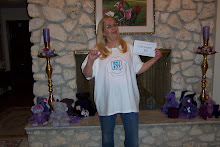This is an excellent video and a good reminder why those of us on Lactulose and/or Rifaximin cannot skip any doses.
WRESTLING THE MONSTER: LIVING WITH HEPATIC ENCEPHALOPATHY
Why Hepatic Encephalopathy (HE)?
Each year, hundreds of thousands of cirrhotic patients are affected by hepatic encephalopathy. In addition to the toll the condition takes on these patients, it impacts their family and friends, who are burdened with a disease that affects many aspects of their lives. Despite the seriousness of the condition, many patients are not receiving the treatment and support they need. This film was created to tell the stories of a patient population that is often without the advocates and support it so desperately needs. Director Cynthia Wade focuses on telling stories that might otherwise not be heard.
WRESTLING THE MONSTER: LIVING WITH HEPATIC ENCEPHALOPATHY follows 4 patients suffering from hepatic encephalopathy. A matriarch and military veteran in northern California now finds herself housebound. In New Jersey, a beloved wife and mother saved by a transplant still struggles with lasting effects. A father in rural Oklahoma flounders with a condition he can’t comprehend. And a formerly high-functioning mother in Florida finds herself isolated and a shell of who she once was.
What will HE destroy next for these patients?
http://www.hesback.com/
Wednesday, November 28, 2012
Monday, November 26, 2012
U.S. Preventive Services Task Force Fails Baby Boomers at Risk for Hepatitis C
U.S. Preventive Services Task Force Fails Baby Boomers at Risk for Hepatitis C
November 26, 2012: The U.S. Preventive Services Task Force (USPSTF) released a draft of its updated hepatitis C screening guidelines today. The draft recommendations for hepatitis C testing among injection drug users and others at high risk grade “B”, meaning testing is recommended, is an improvement over previous guidelines; However, the Task Force failed to match the Centers for Disease Control and Prevention’s (CDC) lifesaving recommendation for people born from 1945 to 1965 to receive a one-time test for hepatitis C. For “Baby Boomers,” who represent 75% of the more than 4 million cases of hepatitis C in this country, the Task Force is recommending only a “C” grade; stating that there is only “small benefit” for testing this group. Martha Saly, the Executive Director of the National Viral Hepatitis Roundtable, a baby boomer who was tested, treated and cured of hepatitis C, strongly disagrees. “Doctors look to USPSTF to guide clinical practice and A and B recommendations get covered without cost-sharing to patients. This is not going to be the case with a C recommendation and will result in many people not being tested.” said Saly, “We’ll miss a tremendous opportunity to save lives.” According to the CDC, if everyone born between 1945 and 1965 was tested, over 800,000 cases would be identified, and up to 121,000 deaths could be avoided.
The vast majority of people with hepatitis C do not know they have it and are at greatly increased risk for advanced liver disease, liver cancer, and death. "The USPSTF took a major step forward in endorsing risk-based screening for people with histories of injection drug use, the leading cause of new infections today.” said Daniel Raymond, the Chair of the National Viral Hepatitis Roundtable, “However the stigma which discourages patients from disclosing past risks will leave an unacceptably high number of people at risk for liver disease undiagnosed unless the USPSTF strengthens its Baby Boomer recommendation."
Often called the “silent epidemic, the number of deaths from HCV will grow in the coming years, especially among people who have been unknowingly infected for thirty to forty years. According to the CDC, if the people who are currently infected with HCV do not receive care, 1.76 million will develop cirrhosis, approximately 400,000 will develop liver cancer, and approximately 1 million will die of related complications between the mid 2020s and mid 2030s. Hepatitis C treatments are improving rapidly, promising more effective drugs and shorter treatment regimens. In light of these positive improvements in treatment, NVHR calls on the USPSTF to take CDC’s lead and remove barriers around testing to ensure that those who are most likely to have hepatitis C are given a chance to know their status, be linked to care and benefit from treatment. Without this step, the “silent epidemic” will rage on.
About NVHR
The National Viral Hepatitis Roundtable (NVHR) is a coalition of more than 200 public, private and voluntary organizations dedicated to reducing the incidence of infection, morbidity and mortality from viral hepatitis in the United States. www.nvhr.org
Martha Saly
Director
National Viral Hepatitis Roundtable
P.O. Box 1662
Rohnert Park, CA 94928
United States
Rohnert Park, CA 94928
United States
Phone: 707-242-3333
www.nvhr.org
www.nvhr.org
Subscribe to:
Comments (Atom)
